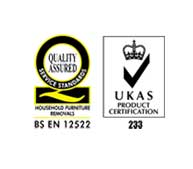Moving to Europe Guide
There is plenty to consider when moving to mainland Europe. Take a look at our guide to the different aspects you might need to think about.

Understandably, the further south in Europe you move, the more relaxed the pace is to life. However, most European capitals have a bustling sense to them and their own unique food and drink culture. Ties between European nations have become closer in recent times, but it’s worth testing the cultural waters in a number of locations before a permanent move.

The languages used across Europe vary wildly, with French, Spanish, Italian and English common. English is often understood in destinations which attract tourists and some countries – including the Netherlands – teach English as a second language in schools.

Different European countries will handle opening a bank account differently, with some – such as Germany – requiring you to register at a dedicated office to get the necessary paperwork you need to be able to open an account.
It’s worth checking with your current bank whether they operate, or have a partner abroad to make transferring your funds easier.

You may be able to import your own vehicle if it meets the individual nation’s standards, but you should also check to see whether you need to swap your licence. Safety and standards vary, with Germany encouraging the use of autobahns while Belgium forces drivers to pay on-the-spot fines for speeding.

In some European countries, housing is cheaper in rural areas, but it varies greatly on the region and the type of property. In Switzerland for example, properties are rented because of the high prices, creating high demand in turn.

How quickly you find employment in your chosen country will depend largely on your skills and the industry in which you choose to work. Most people move abroad with the offer of employment already agreed, so networking is important, along with work history and qualifications.
Working hours can vary, roughly between 35 and 42 for most countries, but this again depends on your industry.

Compulsory education ages are similar across Europe but France has high standards and international schools spread across the country, making it a safe bet for anyone moving with children.
In other countries, you may wish to enrol your child in private schools if you want them to be taught in English.

As things stand currently, UK nationals can get free or reduced cost medical care via a free European Health Insurance Card. Many of the popular European destination are part of the EEA, making it easier to get health care than in non-EEA countries.







